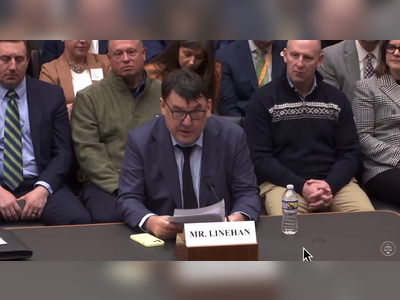Trump's Tax Cuts Take Center Stage in Campaign Battles
Tax policy, especially Donald Trump's plans for tax reductions, along with other key issues such as abortion and immigration, are expected to ignite the fiercest clashes during this year's U.S. presidential election, reports NBC News from overseas.
DONALD TRUMP'S TAX CUTS
In an intriguing coincidence, Trump's previous tax cuts—adopted during his presidency in 2017—are set to expire at the end of 2025. Thus, the winner of the presidential election, alongside Congress, will decide their fate moving forward. The Republican Party's presidential nominee left no doubt about his intentions in a recent consultation with wealthy donors, explicitly stating that he would extend the “Trump tax cuts” if elected.
Moreover, at a hearing of the House Ways and Means Committee, which operates with a Republican majority, the Republicans emphasized their intention to extend the success of the 2017 Tax Cuts and Jobs Act (TCJA).
According to Trump's tax plans, lower tax rates would remain across the income spectrum. However, the most significant benefits, in absolute terms, would logically continue to favor the highest earners.
JOE BIDEN'S PLANS
Current U.S. President and Democratic nominee Joe Biden has criticized the law as a gift to the wealthiest Americans and has vowed that “big corporations and the very rich will finally pay their fair share of taxes.”
Biden has also supported raising the U.S. corporate tax rate from 21 percent to 28 percent, while declaring that citizens earning less than $400,000 a year will not see a federal tax increase.
Furthermore, he advocates for a $3,600 per child tax cut for families and an average $800 tax rebate for "frontline workers"—those who directly deal with customers. In addition, a recent campaign proposal revealed Biden's plan to impose a 25 percent minimum tax on billionaires.
THE BATTLE OF ARGUMENTS
Democrats argue that the Republicans' tax policy would only benefit the wealthiest, while also swelling the United States' national debt.
Conversely, Trump and the GOP argue that the economic prosperity seen in 2018 and 2019—with significant wage and investment growth—followed their tax cuts in 2017, with only the coronavirus pandemic bringing this period of flourishing to an end.
They claim that the country's rising debt and budget deficit are fueled not by GOP tax cuts, but by unchecked spending.
In an intriguing coincidence, Trump's previous tax cuts—adopted during his presidency in 2017—are set to expire at the end of 2025. Thus, the winner of the presidential election, alongside Congress, will decide their fate moving forward. The Republican Party's presidential nominee left no doubt about his intentions in a recent consultation with wealthy donors, explicitly stating that he would extend the “Trump tax cuts” if elected.
Moreover, at a hearing of the House Ways and Means Committee, which operates with a Republican majority, the Republicans emphasized their intention to extend the success of the 2017 Tax Cuts and Jobs Act (TCJA).
According to Trump's tax plans, lower tax rates would remain across the income spectrum. However, the most significant benefits, in absolute terms, would logically continue to favor the highest earners.
JOE BIDEN'S PLANS
Current U.S. President and Democratic nominee Joe Biden has criticized the law as a gift to the wealthiest Americans and has vowed that “big corporations and the very rich will finally pay their fair share of taxes.”
Biden has also supported raising the U.S. corporate tax rate from 21 percent to 28 percent, while declaring that citizens earning less than $400,000 a year will not see a federal tax increase.
Furthermore, he advocates for a $3,600 per child tax cut for families and an average $800 tax rebate for "frontline workers"—those who directly deal with customers. In addition, a recent campaign proposal revealed Biden's plan to impose a 25 percent minimum tax on billionaires.
THE BATTLE OF ARGUMENTS
Democrats argue that the Republicans' tax policy would only benefit the wealthiest, while also swelling the United States' national debt.
Conversely, Trump and the GOP argue that the economic prosperity seen in 2018 and 2019—with significant wage and investment growth—followed their tax cuts in 2017, with only the coronavirus pandemic bringing this period of flourishing to an end.
They claim that the country's rising debt and budget deficit are fueled not by GOP tax cuts, but by unchecked spending.
Translation:
Translated by AI
AI Disclaimer: An advanced artificial intelligence (AI) system generated the content of this page on its own. This innovative technology conducts extensive research from a variety of reliable sources, performs rigorous fact-checking and verification, cleans up and balances biased or manipulated content, and presents a minimal factual summary that is just enough yet essential for you to function as an informed and educated citizen. Please keep in mind, however, that this system is an evolving technology, and as a result, the article may contain accidental inaccuracies or errors. We urge you to help us improve our site by reporting any inaccuracies you find using the "Contact Us" link at the bottom of this page. Your helpful feedback helps us improve our system and deliver more precise content. When you find an article of interest here, please look for the full and extensive coverage of this topic in traditional news sources, as they are written by professional journalists that we try to support, not replace. We appreciate your understanding and assistance.

















